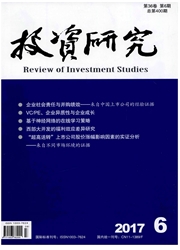

 中文摘要:
中文摘要:
大量实证研究表明,人们在不确定条件下,总是倾向于高估小概率事件并低估大概率事件,呈现反型权重风险偏好的特点。本文针对一类常见的由单供应商和单零售商组成的两级供应链,其中供应商有随机产出风险,分别考察了供应商与零售商的风险态度对其决策的影响。通过构建斯坦伯格博弈模型分析了供需双方的最优订购量和最优计划生产量。结果表明,供需双方或一方有反型风险态度时,保证供需双方均有激励动机签订契约的前提下,分散决策供应链的效率可达到集中决策的效果,也即供应链有可能达到协调。
 英文摘要:
英文摘要:
Studies of behavioral economics show that people are not perfectly rational but always behave with risk attitudes,one of which is that they possibly overweigh low-probability events and underweigh high-probability events.This risk attitude is generally expressed by an inverse S-shaped weighting function.This paper considers a two stage supply chain with a retailer who faces a constant demand,and a supplier who is subject to random yield risk.The retailer decides order quantities from the supplier,with which the supplier decides production quantities.We use Stackelberg game to model the problem and obtain the optimal decisions for both retailer and supplier.We incorporate an inverse S-shaped weighting function into the model construct and discuss risk attitudes of the retailer and the supplier respectively.By comparing risk-averse models with the risk-neutral model,we observe that the supplier chain is conditionally coordinated in risk-averse models,while it cannot be coordinated in risk-neutral model.We also present numerical examples to clearly illustrate this observation.
 同期刊论文项目
同期刊论文项目
 同项目期刊论文
同项目期刊论文
 期刊信息
期刊信息
